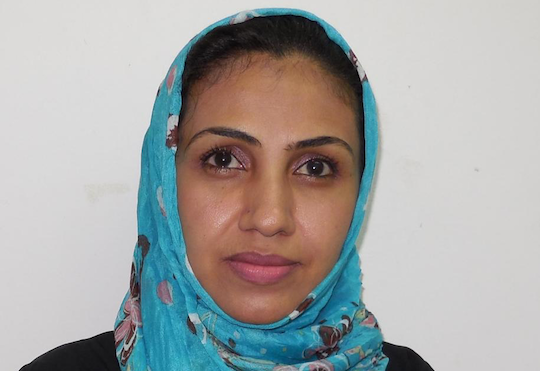This is the second in our series of essays highlighting women writers from Yemen, Sudan, and Saudi Arabia who have never been translated into English before. One of Asymptote’s core goals is to provide a platform for work from regions generally underrepresented in translation. Yemen, Sudan, and Saudi Arabia have long been marginalized in the realm of translations from Arabic to English. The contributors have chosen to focus on women writers because they face greater hardships in getting published. The latest essay focuses on the firebrand Saudi writer, Zeinab Hefny.
A dominant conflict in Arab society is the one between the Shiite and Sunni sects of Islam. This conflict has led to extreme violence against the Shiites, from political marginalization in Bahrain and Saudi Arabia, genocide by Saddam Hussein in Iraq, to confiscation of property, captivity of women and bombing by ISIS. Recently, a military alliance led by Saudi Arabia struck Shiite targets in Yemen, one of the poorest countries in the region, that left hundreds dead and wounded. Despite these atrocities, very few Arab writers have discussed the Shiites’ daily suffering and the violation of their political rights.
However, one who has stood up to condemn this racist sectarianism is the Sunni Saudi writer Zeinab Hefny. She plays an important role as an activist-writer who touches on multiple Saudi taboos—social, sexual, and religious—from the Shiite-Sunni issue to women’s rights.
Zefny’s novel, A Pillow for Your Love (2011), is a worthy addition to the canon of dauntless Arab literature attempting to expose the cultural, political, social and religious crises in Arab society that few Arab writers have confronted out of fear of prosecution. In the novel, Hefny discusses religious anathemas in the Arab community. She highlights the plight of the Shiite sect in the predominantly Sunni Saudi society. READ MORE…


